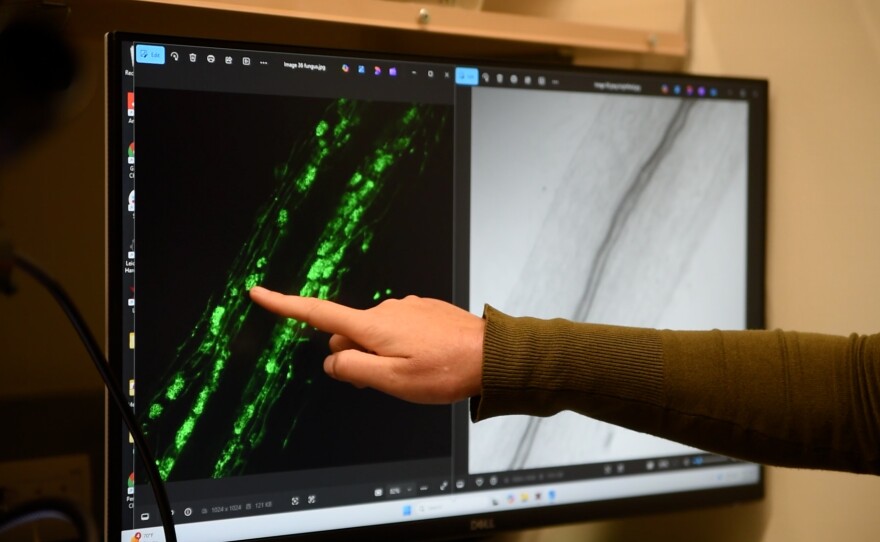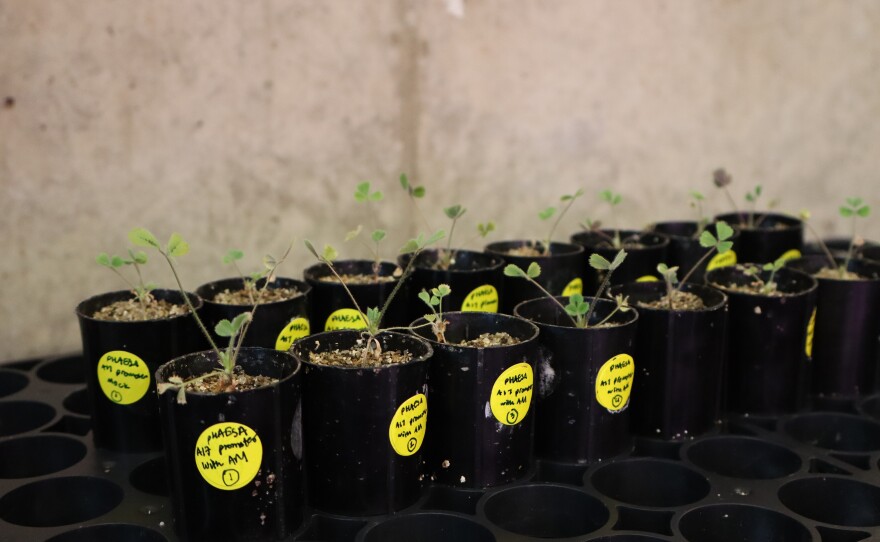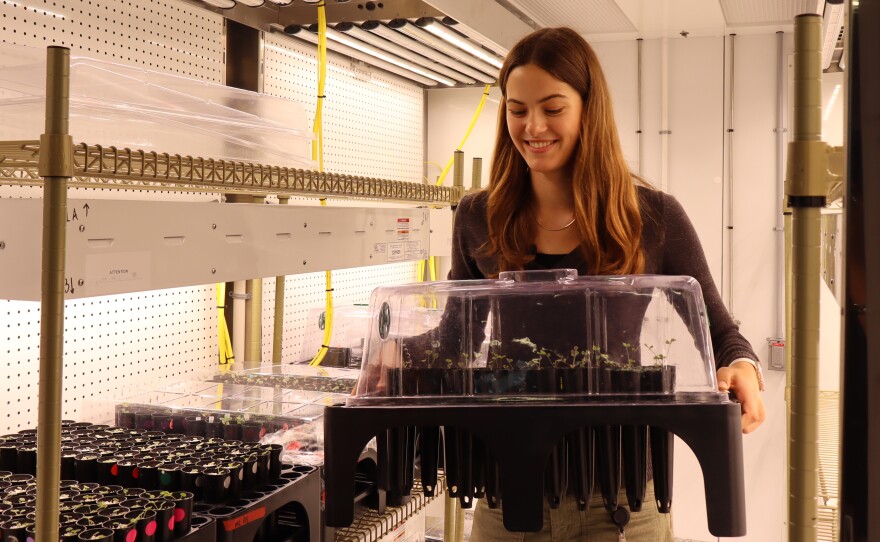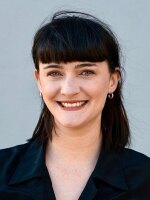Local high school students are wrapping up summer internships at the Salk Institute for Biological Studies this week. The decades-old program offers paid positions in the institute’s scientific laboratories.
Kelly Semtner is one of this year’s students. She first visited the institute with her biology class at High Tech High Mesa, where she graduated in June.
“I wanted to try molecular plant biology, because it gets you to know a lot more about plants and how they signal,” she said.
She spent eight weeks this summer doing just that in Lena Mueller’s lab. Mueller studies the symbiotic relationship between fungi and plants.
“Roots can take up nutrients from the soil,” Mueller said. “But they have a limited reach.”
Mueller said fungi inside the roots grow thread-like networks called mycelium. Those threads can reach farther into the soil, helping the plant access more nutrients. In exchange, the plant gives the fungus carbon, which makes the soil healthier.
Semtner’s internship focused on determining which plant genes sense the presence of fungi.
“The microscopy was really interesting,” she said. “You can see where the fungi has actually colonized in the roots.”

Centuries of breeding have made it harder for crop plants to interact with fungi, Mueller said. She hopes this research could help reverse that, and reduce dependence on chemical fertilizers.
“The hope would be to be more sustainable with our agricultural practices by exploiting these natural relationships more,” Mueller said.
Semtner’s eight-week internship gave her enough time to see an experiment through from start to finish — from sowing the seeds, to harvesting the plants, to staining the roots in order to see the fungus under a microscope.

“This internship has taught me a lot about what a real research job looks like and what a really strong community can teach you,” she said.
She’s one of 13 local high school students who did research at the Salk Institute this summer.
Mueller said they bring curiosity and excitement to their work.
“We all have great interest in training the next generation of scientists,” Mueller said. “These are the people who are going to be making the discoveries, that are going to solve the problems of the future.”
Semtner’s path to becoming a scientist takes her to UC Santa Barbara this fall, where she plans to study biology.






